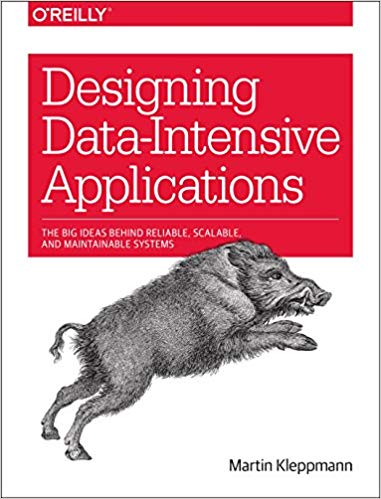As we’ve done the podcast over the past several years we’ve come across resources that have been valuable to us and we’ve recommended them several times on the show or even in private conversations with many of our listeners.
In many cases, the links will be affiliate links to the resource we’re recommending and by using the link you’re helping to support Coding Blocks. If you purchase using one of the links below we’ll earn a small commission and you don’t get charged anything extra! It’s a win-win!
We talked about this book in several different episodes, and may talk about it in the future! It’s a great look at how the systems that process data look. Ever wanted to build a distributed database from scratch? Well this is the place to start!
- Episode 120 – Reliability
- Episode 121 – Scalability
- Episode 122 – Maintainability
- Episode 123 – Data Models: Relational vs Document
- Episode 124 – Data Models: Relationships
- Episode 125 – Data Models: Query Languages
- Episode 127 – Storage and Retrieval
- Episode 128 – SSTables and LSM-Trees
- Episode 130 – To B-Tree or not to B-Tree
- Episode 160 – Single Leader Replication
If you have any interest AT ALL in the business of storing and retrieving large sets of data, this book HAS to be on the top of your list.
This book has quickly risen to the top of our must read list. In today’s software development world, fast feedback cycles, observability and so much more is required. This book will, at the very least, open your eyes to what’s possible, and help you understand WHY you should introduce good DevOps practices in your environment.
- Episode 136 – The Technical Practices of Flow
- Episode 137 – Architecting for Low-Risk Releases
- Episode 138 – The Technical Practices of Feedback
- Episode 139 – Anticipating Problems
- Episode 140 – Enabling Safe Deployments
- Episode 142 – The Value of A/B Testing
- Episode 143 – Enable Daily Learning
- Episode 145 – Create Organizational Learning
This book had a great impact on our development careers.
Near the top of the list has to be Clean Code by Uncle Bob Martin. We’ve done several deep dives into the book in the episodes below:
- Episode 47 – Writing Meaningful Names
- Episode 48 – How to Write Amazing Functions
- Episode 49 – Comments Are Lies
- Episode 50 – Formatting Matters
- Episode 51 – Objects vs Data Structures
- Episode 52 – Error Handling
- Episode 53 – Integrating with Third Party Libraries the Right Way
- Episode 54 – How to Write Amazing Unit Tests
- Episode 55 – How to Write Classes the Right Way
- Episode 56 – How to Build Maintainable Systems
In our opinion, this is a crucial read for all software developers at any point in their career. If you’ve not read this book, it needs to be near the top of your list.
Another book by Uncle Bob Martin and in our opinion, another great one. We’ve had several podcast episodes talking about various topics in the book:
- Episode 68 – Fight For Architecture
- Episode 69 – Programming Paradigms
- Episode 71 – Components and Component Cohesion
- Episode 72 – How to Quantify Component Coupling
- Episode 73 – Keeping Your Options Open
- Episode 74 – The Art of Drawing Lines
- Episode 75 – Make Your Architecture Scream
- Episode 76 – What is the Humble Object Pattern?
- Episode 77 – Are Microservices Truly Decoupled?
If you care about writing applications that are maintainable and something you can take pride in, this is a book you should have in your collection.
If you weren’t classically trained in Computer Science, or if it’s just been a long time since you took those classes, it’s easy to feel in over your head when people start talking about Big O notation and algorithmic complexity. For an approachable and easy to digest way to pick up the missing (or long forgotten) pieces, we highly recommend picking up your own copy of The Imposter’s Handbook by Rob Conery.
Episodes where we’ve talked about or used the book heavily as a resource include:
- Episode 81 – Understanding Complexity Theory
- Episode 84 – Algorithms You Should Know
- Episode 85 – Graph Algorithms
This is NOT an affiliate link, but we like the book so much as a resource and a way to help you speak the lingo of CS folks, this is a must have.
While ergonomic keyboards aren’t for everyone, if you suffer from RSI or have the beginnings of carpel tunnel, it’s probably worth checking out a keyboard that is easier on your wrists. This has been on our list of favorites for a few years running now.




















